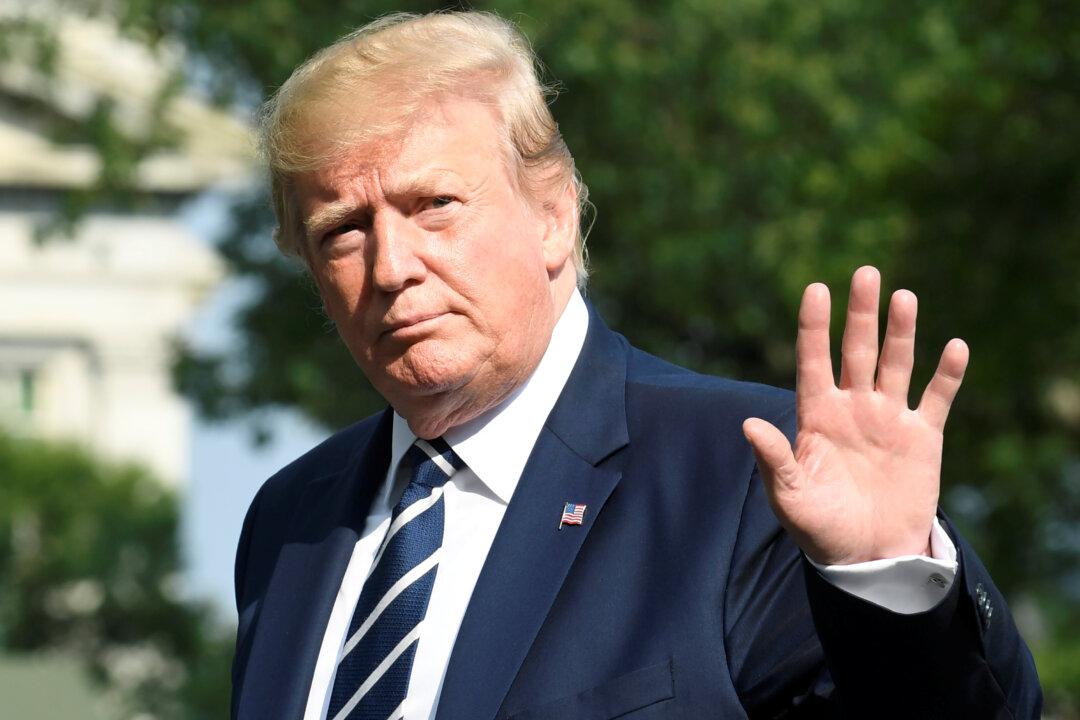President Donald Trump’s recent vetoes have held up after votes in the U.S. Senate on July 29 showed the Senate majority will now allow the administration to move forward with plans to sell weapons to Saudi Arabia and the United Arab Emirates.
Saudi Arms Sales to Counter Iran Aggression to Go Ahead After Senate Sustains Trump Veto

President Donald Trump waves to the press as he returns to the White House, Washington, U.S., after a weekend at his golf club in Bedminster, New Jersey, July 21, 2019. Reuters/Mike Theiler
Mimi Nguyen Ly
Reporter
|Updated:



